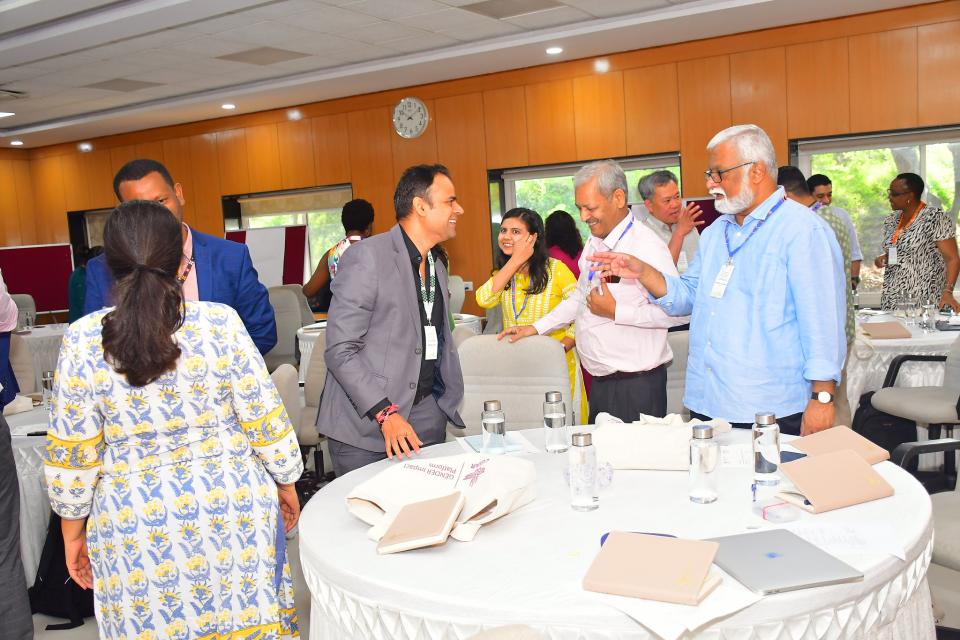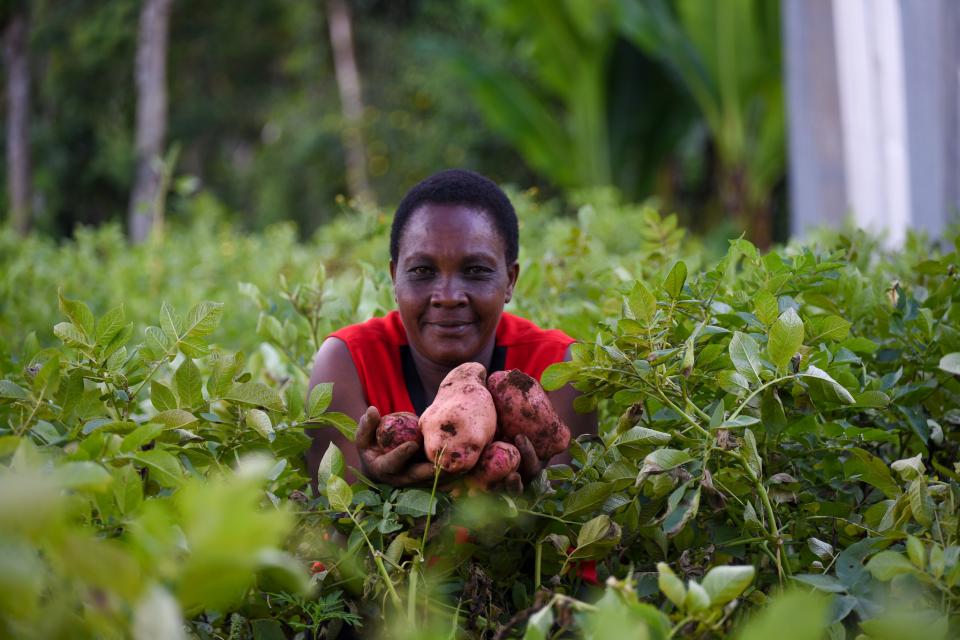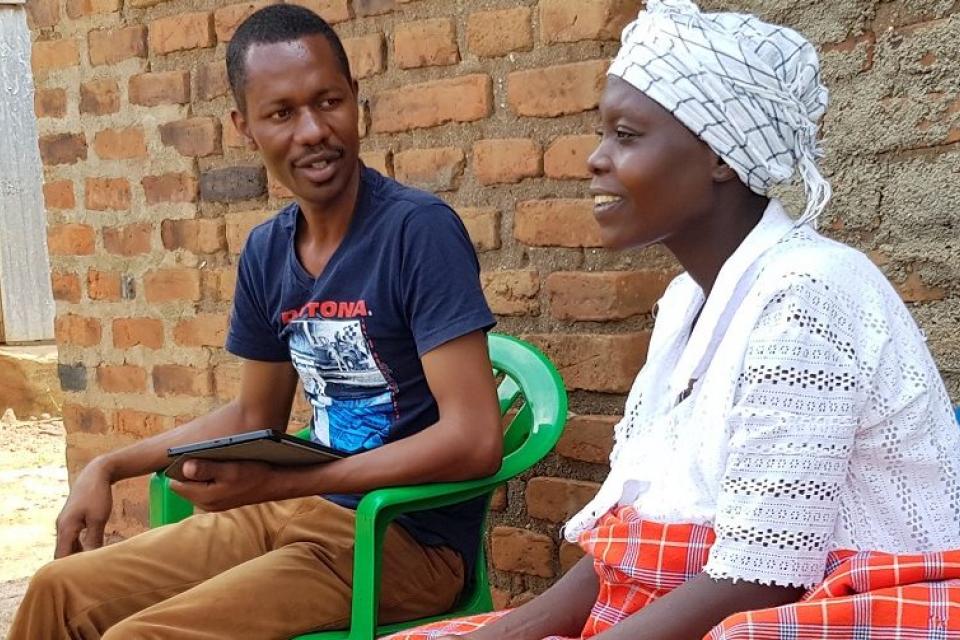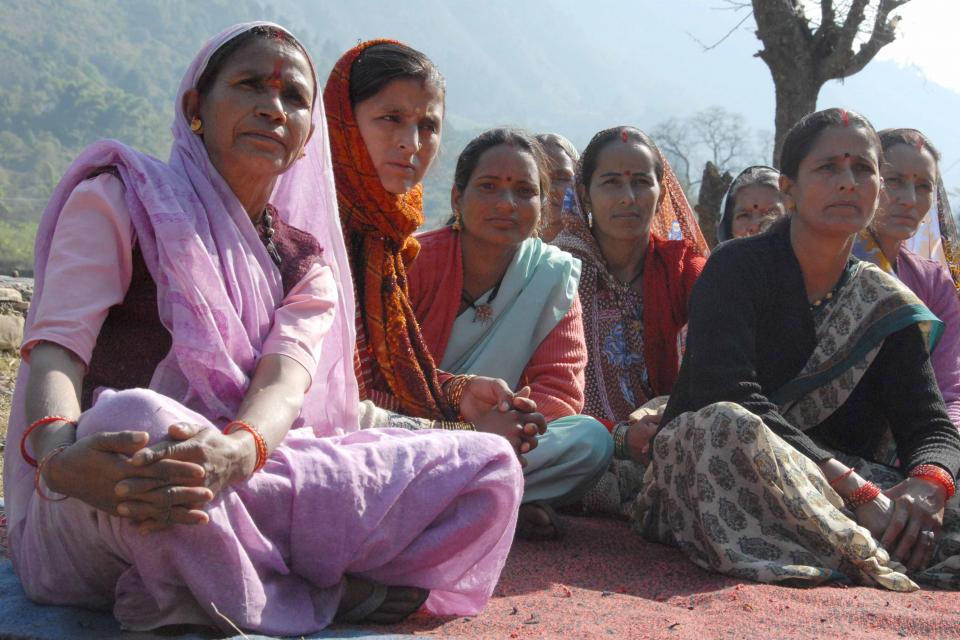Gender-Responsive Agricultural Extension: Transforming Practices, Policies and Institutions
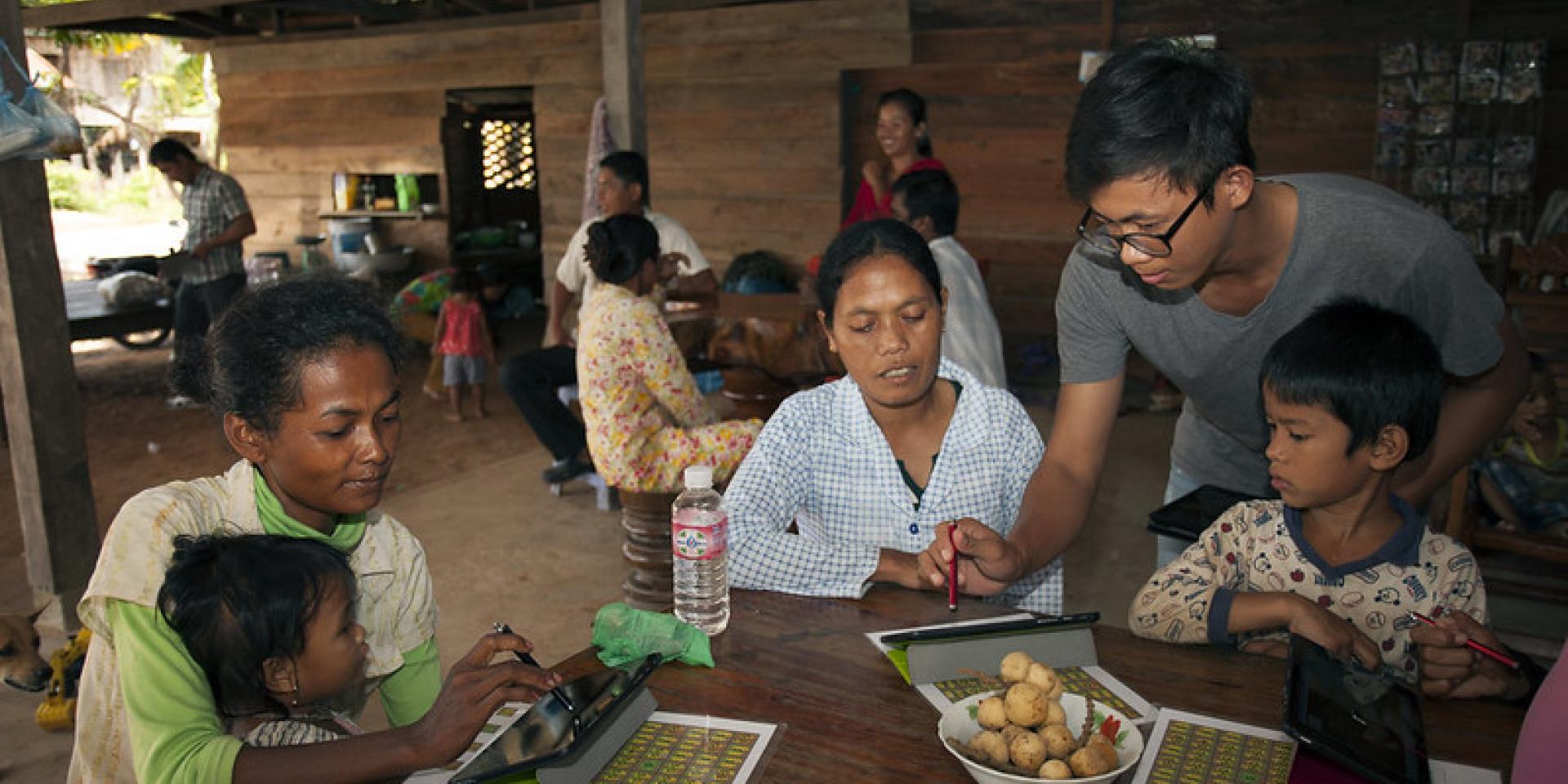 Milo Mitchell / International Food Policy Research Institute
Milo Mitchell / International Food Policy Research Institute
The CGIAR GENDER Impact Platform and the National Institute of Agricultural Extension Management (MANAGE) will host a workshop 'Gender Responsive Agricultural Extension: Transforming Practices, Policies and Institutions' from 5-7 November in MANAGE, Hyderabad, India.
The workshop will bring together global thought and practice leaders to reflect on the gendered aspects of agricultural extension and advisory services, share experiences, identify best-fit approaches that work for women in agri-food systems, and distill strategies for more gender-responsive extension systems.
In the food systems, women serve as major actors as agricultural producers, farm managers, processors, traders, wage workers, and entrepreneurs. 66% of women's employment in sub-Saharan Africa and 71% in southern Asia are tied to these systems. There is an estimated 24% productivity gap between women and men-managed farms of the same size. Closing these gaps in far productivity and wage disparities could increase global GDP by 1% (nearly USD 1 trillion) and reduce global food insecurity by about 2 percentage points, benefiting 45 million food-insecure individuals.
Access to new knowledge, information and technologies is vital for enhancing agricultural productivity, and fostering innovation in agri-food systems. However, evidence reveals that women do not fully benefit from extension services. Specifically, there is evidence to suggest that extension workers reach out more to men farmers to share information and disseminate technologies.
In sub Saharan Africa, where extension services are frequently delivered through community-based organizations and cooperatives, women's participation is hindered by challenges such as time constraints, mobility issues, and entrenched social norms (Bouchama et al., 2018). Moreover, selection criteria based on factors like land ownership, household representation, age, and education inadvertently exclude many women and resource-poor households from accessing extension programs.
A gender-responsive extension and advisory services (EAS) requires that women and men farmers and producers are equally able to access the services they need, that extension delivery approaches are adapted to the different needs of women and men, and, more generally, that EAS policies and priorities recognize the critical roles of women as well as men in agrifood systems and are guided by them.
The aim of this workshop is to identify and explore cutting edge approaches and innovations in making agricultural extension and advisory services provision gender-responsive, ensuring that women have access to appropriate technologies, tools and resources in the face of climate change and the rapidly evolving food systems. It endeavors to bring global thought and practice leaders in this area to reflect on the gendered aspects of agricultural extension and advisory services, share experiences, identify best-fit approaches that work for women in agrifood systems, and distill strategies for a more gender-responsive extension system.
